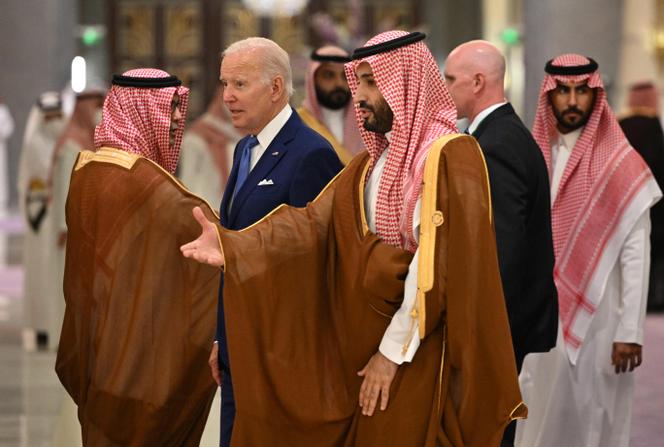


During his 2020 presidential campaign, Joe Biden promised to treat Saudi Arabia like a pariah. That was after the murder of journalist Jamal Khashoggi on the premises of the Saudi consulate in Istanbul in 2018. Today, the kingdom and its prince, Mohammed bin Salman (known as "MBS"), are being courted by a United States administration keen to reshape the Middle East that it has deserted and bring it to an unprecedented step through a tripartite agreement enabling the normalization of relations between Saudi Arabia and Israel. The project requires effort and compromise.
Despite his criticism of the judicial reform promoted by Israel's right-wing government, the US president will finally meet Prime Minister Benyamin Netanyahu on Wednesday, September 20. But the meeting will take place in New York, on the sidelines of the United Nations General Assembly, and not during an official visit to the White House.
Behind the scenes, discussions are intensifying despite personal distrust. Biden has to contend with pressure from members of Congress who are reluctant to make significant concessions to Riyadh. At the last G20 summit in New Delhi, the US leader and MBS exchanged a handshake in front of the cameras. Back in July, National Security Advisor Jake Sullivan visited Jeddah. In addition to maintaining the ceasefire in Yemen and the delicate issue of oil production to bring down prices as America is about to enter an election year, the main aim of his trip was to gauge progress in normalizing relations with Israel.
The three leading players in this negotiation all have an interest in a successful conclusion, but they all have good reasons for not achieving it. After the 2020-2021 Abraham Accords, which, under former US president Donald Trump's aegis, endorsed the normalization of Israel's relations with the United Arab Emirates, Morocco, and Bahrain, followed by Sudan, an agreement between Riyadh and Jerusalem would represent an unprecedented milestone in relations between the Hebrew state and the Sunni Arab world. But for the time being, Netanyahu is the consenting hostage of his toxic alliances with the far right; the Saudi kingdom has no desire to appear as a guarantor for it, and the Biden administration is well aware of its interlocutors' versatility.
"Do not let Netanyahu make you his useful idiots," Thomas Friedman, an opinion columnist with The New York Times, wrote on September 5 in a message to Biden and MBS. As early as December 2022, the Israeli prime made normalizing relations with Riyadh the priority of his new term. "He sees it as his legacy to history and a way of erasing the moral failure represented by his justice reform," said a European diplomat. For over a decade, Netanyahu has consistently maintained, often alone, that Israel could make "peace" first with the Arab world, then, eventually, with the Palestinians. The Abraham Accords supported the vision.
You have 63.14% of this article left to read. The rest is for subscribers only.
